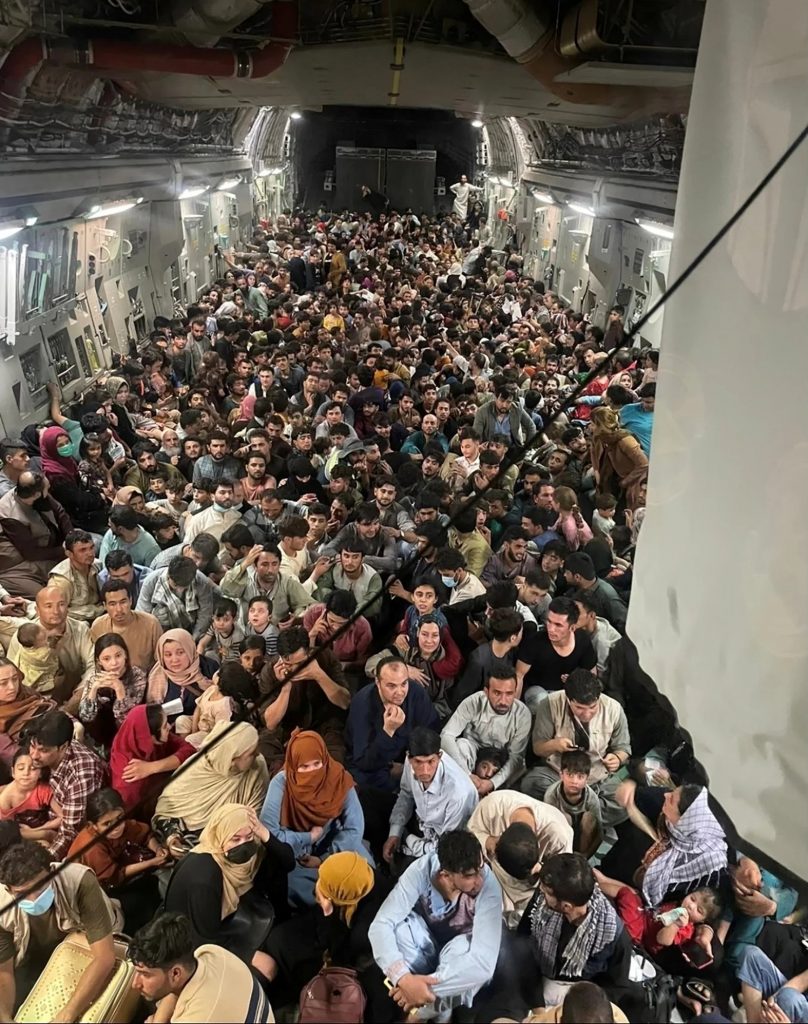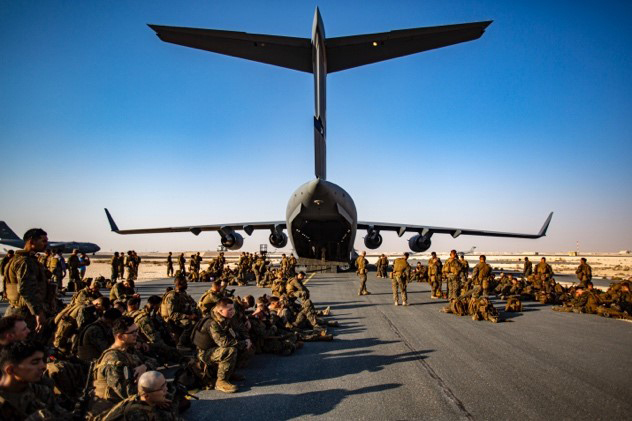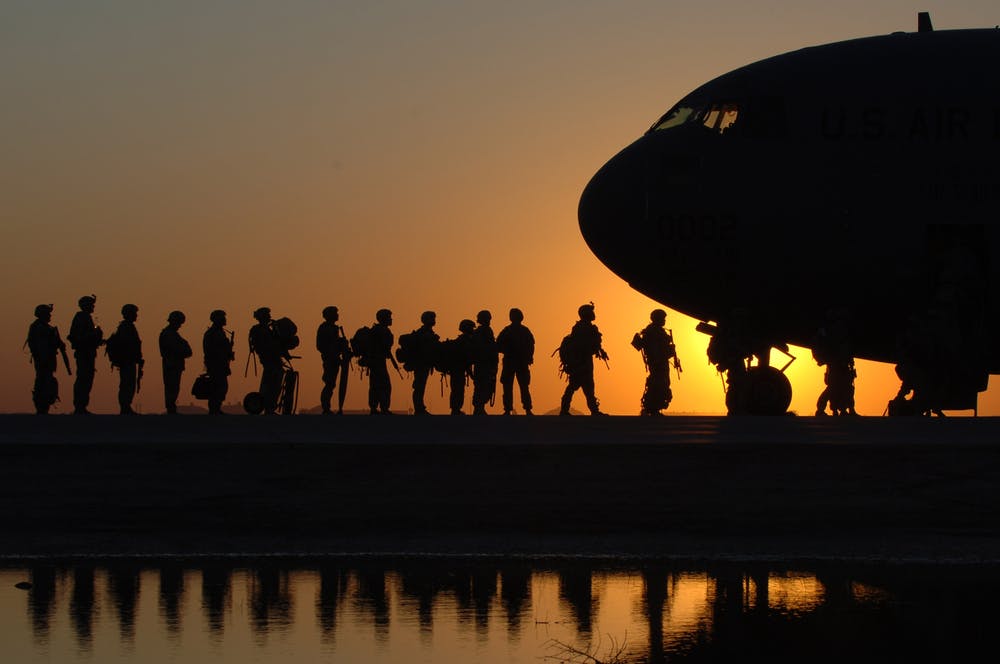By: Isabelle Despicht, Rosa Maria Torraco.

What role do embassies play in major events nowadays? When do countries consider opening, evacuating or temporarily closing embassies? These are some of the questions that arise when we consider global events such as the U.S. moving the capital of Israel from Tel Aviv to Jerusalem, and also when analysing the recent crisis in Afghanistan.
In order to answer them, we met with Boy Frank, a former diplomat with 34 years of experience in the Dutch foreign service, during which he worked in the opening of three embassies and the evacuation of the same number.
Embassies in a nutshell
Generally, we think of embassies as mere foreign praesidiums in a country. However, they play a much more significant role, as they help us communicate, find refuge, and especially establish a medium between two countries.
But opening an embassy in a specific country or even city is much more than just opening a new access point. An embassy is used as a base for economic relationships, and is a necessary instrument to waive a country’s presence on the ground. Mr Frank explains that ‘’when determining where to open an embassy all factors are carefully weighted’’. Embassies will be opened in those countries that are the most relevant economically, politically or culturally.
Just as embassies can be opened, they can be closed, evacuated, and their personnel can be called back for consultation. This was recently the case with the French president Emmanuel Macron, who called back his Ambassadors to the United States (US) and Australia after the latter cancelled its purchase of French submarinesand announced a new contract with the US.
Such moves have a political weight, and rightly so. The act of recalling Ambassadors was a way for France to underline its discontent with Australia’s move. By the same token, Trump's decision to move the American Embassy from Tel Aviv to Jerusalem through which he took sides in the ongoing Israeli-Palestinian conflict.
Also in times of pandemic, embassies come to play an important role. While most of those we know were functioning on high alert, tasked to inform the public about the situation surrounding Covid-19, many embassies situated in North Korea’s capital Pyongyang were temporarily closed due to restricted access to essential goods. European countries such as France, Germany and the United Kingdom temporarily closed their missions, as opposed to Russia: proof that although closing an embassy or calling back its personnel can be a political move, it can also be the result of a humanitarian emergency.
Trump’s controversial move: from Tel Aviv to Jerusalem
International custom dictates that a country has to place a diplomatic representation in a country's capital. However, as the status of Jerusalem is considered one of the greatest disputes in International Law as both Israelis and Palestinians claim sovereignty over the city. Nevertheless, on the 6 of December 2017, Trump announced that he would move the U.S. embassy from Tel Aviv to Jerusalem, thus changing de facto Israel’s capital city.
During the opening ceremony of Jerusalem’s embassy, Trump said: “Our greatest hope is for peace”. Still, as Mr Frank states, it appears evident that this was a unilateral move by which the U.S. took sides in favour of Israel. Pro Israeli politicians in the U.S had long been pressuring Washington to move the Embassy to Jerusalem. In 2017 Trump maintained the promise he made during his 2016 presidential campaign, where he used the argument of moving the embassy from Tel Aviv to Jerusalem as one of the main points in his race for the White House.
The major European powers did not take long to distance themselves from Trump’s decision. Indeed, the European Union (EU)’s High Representative for Foreign Affairs and Security Policy (HR/VP) reiterated that the EU would continue to respect the international consensus on Jerusalem's status. The European Parliament has always favoured the two-states solution, in which Jerusalem would serve as the capital of both Israel and Palestine.
In spite thereof, European institutions did not seem to reflect the position of every European country: recently, Hungary and the Czech Republic have opened a diplomatic mission in Jerusalem, underlining the friendly relationship with Israel, destined to change the political dynamics of the region.
As Mr Frank suggests, this case demonstrates that the U.S. has the ability to affect and influence the development of international geopolitics, just as it recently happened with the withdrawal of its troops from Afghanistan. This resulted in the arrival of the Taliban and the evacuation of its capital, which Joe Biden called “the largest airlift in U.S. history”.
Evacuation of Kabul’s Embassies: what went wrong?
When in April, the U.S. announced that it would be withdrawing its troops from Afghanistan by 11 of September 2021, many feared the arrival of the Taliban, although no one was prepared for what was about to happen.
In mid-August, the capital of Kabul was taken over by the Taliban, creating immense chaos that led to the evacuation of both civilians and diplomats, who desperately tried to reach the airport in an attempt to flee the country.
More than a month after this international incident, we asked Mr Frank what went wrong in Kabul’s evacuation and what could have been done better from a European perspective. He explains that: ‘’people waited too long to evacuate. They let the crisis unfold, and it got too intense to plan for a proper evacuation.’’
Indeed, the time at which the Taliban arrived in Kabul was highly underestimated, which only contributed to the emergency of the situation. So this bears the question: are European embassies sufficiently prepared for these types of circumstances?
How could they not be prepared? In the interview, the former diplomat points out that, in theory, each embassy has an evacuation plan. Still, because there are always-changing scenarios, the circumstances remain unpredictable, and embassy evacuation plans are thus limited to the most likely scenarios.
One could ask, why a plan if they cannot apply it? Embassies do so to ensure the highest chances of safety, which is what they come down to in times of hardship. But while many of those located in Kabul and their staff warned their home countries about the situation and the arrival of the Taliban, EU countries were scrambling to send rescue.
Today the respective Foreign Affairs departments of each state have audit teams, which are in turn responsible for identifying gaps and proposing improvements for incidents such as the one in Kabul. We can only hope that the international community will learn from this political and humanitarian disaster.
Conclusion
As we have seen, it seems that most of the major events of our time, from the Israeli-Palestinian conflict to the Afghan Crisis, can be read in the key of embassies’ openings and movements. Today embassies are not just a medium between two states; they play a leading role in developing economic, political and cultural relations and are symbolic in acknowledging and recognizing a state.
If you are interested in learning more about opening and closing embassies, our interviewee, Mr Frank, provides Masterclasses on the topic. He has also recently published his first book, ‘’The adventures of Boy Frank’’ where he talks about his diplomatic experience in several countries, including Pakistan, Algeria, Eritrea, Angola and many others.




